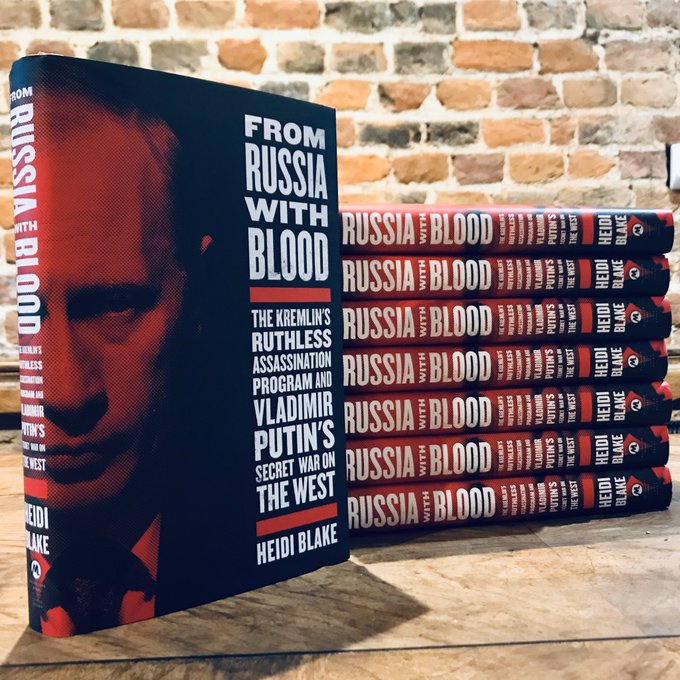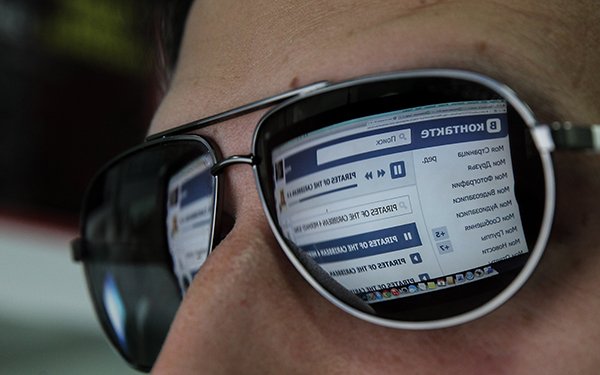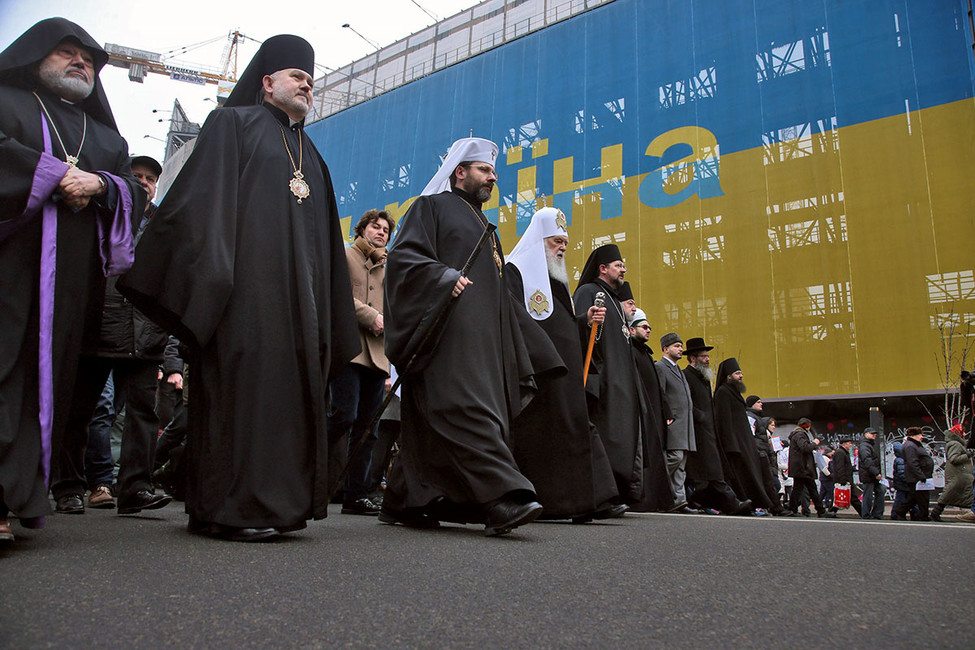Heidi Blake’s, From Russia With Blood, about Russian state-sponsored attacks and murders of individuals in Russia and abroad, including Russian defectors Sergei Skripal and Alexander Litvinenko and others, is a gripping read. But the real story is the larger picture that emerges from these murders confirming what is already widely believed. Russia is at war.
In Blake’s telling, the attacks on and murder of Russians and other nationals in Russia and in Western countries are linked not just to money laundering of Russian wealth but also to the work of the Russian security services to eliminate Putin’s opponents and to compromise individuals and Western institutions, to Russian cyberattacks and disinformation that undermine faith in Western institutions, to interference in other countries’ political processes, and to Putin’s criminality at the expense of the Russian people and his dream to overturn the global system and restore Russian power.
Blake’s is a gritty, street-level view of Russia at war. As early as the 1990s and for most of the first two decades of the 2000s, Britain, the US, and other countries turned a blind eye to evidence that Russia under Putin was conducting a campaign of murder against its citizens and Western enablers who had fallen out with the Kremlin over money or politics.
Although not set out in Blake’s narrative, the West’s impotence is on full display among British and US politicians. An inquest into the 2006 murder of Alexander Litvinenko did not take place until 2016 as Britain prioritized trade and investment with Russia. This last year, British Prime Minister Boris Johnson is accused of having delayed for political purposes a government report on Russian election interference until after his election. In the US, Trump and his circle, as well as leading Republicans–often funded by Russian sources through organizations such as the NRA or Trump associates Lev Parnas and Igor Fruman—frequently belittle the risk of Russian interference and, at times, legitimate and amplify Russia disinformation, such as that Russia did not interfere in the 2016 election or that Ukraine was responsible for interfering not Russia, as detailed among other places in the Mueller Report and the ongoing impeachment drama.A Russia consumed by criminality was emboldened by Western avidity for vast Russian wealth seeking a safe harbor in the West
Evident from Blake’s narrative is that a Russia consumed by criminality — foremost as practiced by Vladimir Putin — was emboldened by Western avidity for vast Russian wealth seeking a safe harbor in the West even as that wealth brought with it the subversion of Western banks, law firms, and anonymous corporations. Western avarice is epitomized by the murder of Britains described in Blake’s book, such as lawyers Stephen Curtis and Stephen Moss and the horrific death of fixer Scot Young.
Blake summarizes the scope and consequence of Putin’s war on the West, as follows,
“The Novichok attack on Sergei and Yulia Skripal on a rainy Sunday in Salisbury was the latest dramatic salvo in a series of increasingly warlike moves by the Kremlin (…“the attack on the Skripals had been conducted by two serving members of Russia’s military intelligence agency…”). Putin’s security state had helped propel Donald Trump to the White House through a concerted campaign of meddling in the 2016 US election. Its hacking labs, internet troll factories, and fake news farms had sown disunity, disruption, and disinformation in democracies across Europe, while its financing of extremist fringe groups had stirred up race hate and violence around the world. It had sponsored an attempted coup against the government of Montenegro as the country neared accession to NATO and unleashed ever more malignant cyberattacks on Western governments. And, for all the effort to make Russia part of the solution in Syria, it had backed the regime of Bashar al-Assad with increasingly ferocious military assaults on the Western-backed rebels as the dictator gassed hundreds of his own people with internationally outlawed chemical weapons. The leaders of the United States and Europe had covered their eyes to the Kremlin’s crimes for so long that the man inside had crept right up on them, and now Putin’s actions amounted to an asymmetric war on the West.”
What Blake writes is corroborated and expanded by other reporting and sources. For example, the involvement of the Russian government is detailed in the New York Times reporting on a secret Russian military unit specifically tasked with assassinations in Europe and in disinformation campaigns.
Blake’s is an unfinished story. Even now many in the West are captivated by the chance of windfall wealth from Russia and other countries based on providing a safe harbor for illicit money flows. The political leadership in Britain and in the US, as well as in the EU, are still too unaware of the scope and consequences of Russia’s asymmetric war on the West — of which money-laundering is only a small part. Some appear prepared to compromise on Western security for personal and party short-term gain.
Nevertheless, Putin’s war has provoked a response. Anti-money laundering legislation in Britain in 2017, as well as the proposed US Illicit Cash Act and proposed EU anti-money laundering legislation, if passed, could curtail the immediate threat from money laundering. And, more aggressive measures that address the source of corruption and anti-Western aggression, such as the so-called “Magnitsky Act,” passed in 2016 and 2017 by the US, Britain, Canada, as well as by the frontline neighboring states in Putin’s war, Estonia, Lithuania, and Latvia, has already curtailed the activities of those who engage in money laundering and in human rights abuses. Further “Magnitsky” legislation is under consideration by the EU — which hosts numerous off-shore financial jurisdictions listed by the IMF, including Ireland, Luxembourg, Cyprus, Malta, Monaco and others–and by EU member states. Ukraine, Moldova, and Georgia are considering similar legislation. Each of these last three countries has been the target of and lost territory in Russia’s asymmetric war.
Measures already enacted and those under consideration are needed to blunt Russia’s aggression, but they are insufficient by themselves Russian aggression is wider-ranging in means. Knowing Putin’s game plan, the West cannot afford to fight a limited or solely defensive asymmetric war. The West needs a proportionate response that demonstrates that for every action there will be an equal and like response that disrupts Russia at war.
BuzzFeed News contributed to exposing Russia’s asymmetric war. As Blake writes, Buzzfeed News “published a series of stories laying bare Russia’s campaign of assassination in the West. The series had mapped a web of fourteen suspected hits in the UK, including the deaths of Boris Berezovsky, his fellow exiles, and their British fixers, as well as the death of Mikhail Lesin in America.” Blake is Global Investigations Editor at Buzzfeed News.
Read more:
- “I was told we should work with fascists”: former KGB officer Zhirnov
- Only 3% of Russians say they believe Moscow poisoned Skripal
- Russian media have published 20 different narratives on Skripal poisoning
- Britain urged towards Magnitsky-style sanctions against torturers of Ukrainian political prisoners of the Kremlin
- The bold assassination attempt on ex-Russian spy Sergey Skripal in Salisbury, England









